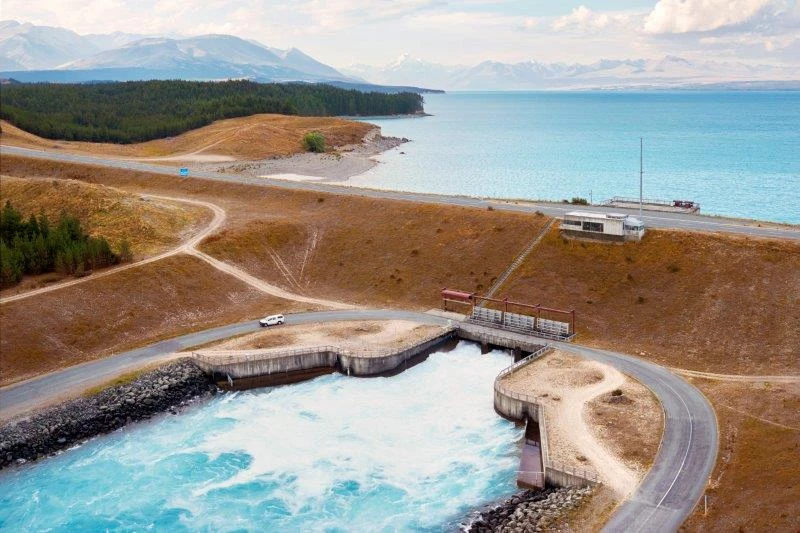The Electricity Authority’s report on Winter 2024 finds key industrial consumers could have hedged over Winter 2024 and underscores need for Authority’s stress test regime to be strengthened.
In July and August of 2024 a severe shortage of gas, low wind and low hydro lakes resulted in high wholesale electricity prices for around three weeks, before prices fell away (often to just above zero) as rain arrived and the situation improved.
While most large industrial consumers of electricity chose to hedge their electricity purchases and insulate themselves against the impact of wholesale market price volatility, some large industrial users chose not to. Several of them referenced high wholesale electricity prices as a cause of their well-publicised financial difficulties and, in some cases, the closure of their operations.
Following those events, Meridian engaged former Chief Executive of the Electricity Authority, Carl Hansen, to undertake a review of the Authority’s stress-test regime. The regime requires large users of electricity to ‘stress test’ their businesses against the possibility of high wholesale electricity prices. His report, published earlier this year, says that the stress test regime plays a crucial role in the electricity market because it addresses incentives for what he calls “opportunistic behaviour” - the lobbying of politicians to help bail out businesses who have chosen not to hedge, and/or to intervene and cap wholesale prices, or otherwise change market outcomes.
For many years in New Zealand, opportunistic behaviour was a regular feature of the electricity market. However, after the stress test regime was introduced in 2011, and despite several dry winters since then (including 2012, 2018 and 2019), such lobbying has not been common.
The re-emergence of opportunistic lobbying during winter 2024 suggests, in Carl Hansen’s view, that reform of the stress test regime is urgently needed. In particular, he recommends that the stress test regime is strengthened and that the results of the stress tests are made available to politicians and media commentators to keep the public better informed.
Mr Hansen’s recommendations were underscored by the release last week of the Electricity Authority’s official report into Winter 2024. It found that all the industrial consumers who turned down or halted production in Winter 2024 - and who cited high electricity prices as a cause - had access to hedge contracts and could have chosen to be fully hedged across July, August and September 2024.
"The Authority's report finds the electricity market worked as it should, but some industrials suffered because they chose not to purchase hedge contracts to protect themselves,” says Carl Hansen.
“Their opportunistic behaviour suggests the Authority needs to strengthen the stress test regime and make better use of it.”
He says the stress test is one of the Authority’s key levers to remove incentives for opportunistic behaviour, and he believes it is in the public interest for the Authority to be able to share the stress-testing results more widely.
“The Authority needs to find a way to make the results available to ministers and media commentators in a form that they can use to inform their audience. The current approach to reporting the results is not fit-for-purpose.
“[The Authority] also needs to use the stress test to obtain information about hedge offers rejected by materially under-hedged parties before we head into winter each year. It collected this type of information for these three businesses well after the winter event was over, so it was not available when it was most needed. Addressing both issues would go a long way to reducing opportunistic lobbying through the media."
The Authority’s report into Winter 2024 also found that most electricity consumers, including all residential households, were sheltered from high prices through retailer hedging, and that electricity generators did not make larger margins from higher prices.
